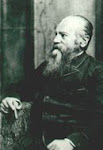The landmark Swafford Barn, the war over electric power and the true fate of one of Cullman County's best-known African-American residents were discussed at the March meeting of the Cullman County Historical Society.
Harold Mayo shared his recollections and fielded questions from those in attendance.
When giving directions "you used to tell somebody, 'Go four miles past Swafford barn,'" Mayo said. Swafford barn was notable both because it was a rare barn that wasn't painted red and also because of its large size: It had three lofts with elevator in the back.
Asked about the location of Shicks Bluff, which is featured in the historical society's postcard book, Mayo explained that the popular fishing and camping area was behind the St. Bernard campus and a church on Welti Road. A cabin built by a group of men who used to enjoy the site burned and was never rebuilt. The fire's cause was credited by folks on a nearby preacher who suspected the men were doing more than fishing on their excursions, Mayo said, though apparently charges were never filed.
Mayo also dispelled the story that Charlie Bugg, a well-known black resident, was secretly buried in the city cemetery after dying while playing poker at the ice factory. Turns out, Bugg actually died in World War I, according to records from undertaker Oskar Fisher.
Bugg also was known for his size 15 shoes. A local shoemaker would run a contest, setting a pair of size 15 shoes atop a block of ice and asking people to guess how long it would take from the soles of the shoes to touch the sidewalk. The winner got a free pair of shoes, and Bugg got the size 15s used in the contest.
Then there was what came to be known on official maps as "Sugar Creek." Residents had a less-than-sweet name for the creek that caught raw sewage from several outhouses that sat along it and from three businesses that had dug a secret ditch to it. When cartographers from Birmingham set out to make an official map, the mayor just told them to label it "Sugar Creek."
The formation of the Cullman Electric Cooperative came with a fight, Mayo said. Alabama Power at first didn't want to give up its lines, and employees would climb power poles with guns strapped to their sides. Eventually, Alabama Power gave up the battle, and the co-op bought the lines. "It was a war for a while," he said.
Among other tales of Cullman's past, Mayo noted that the name of Peoples Drug was derived from the Peoples Party, a forerunner of today's Tea Party movement that had split from the Republican party. At one time there were businesses named Peoples Barber Shop and Peoples Phone Company.
Sunday, March 28, 2010
Subscribe to:
Post Comments (Atom)









No comments:
Post a Comment